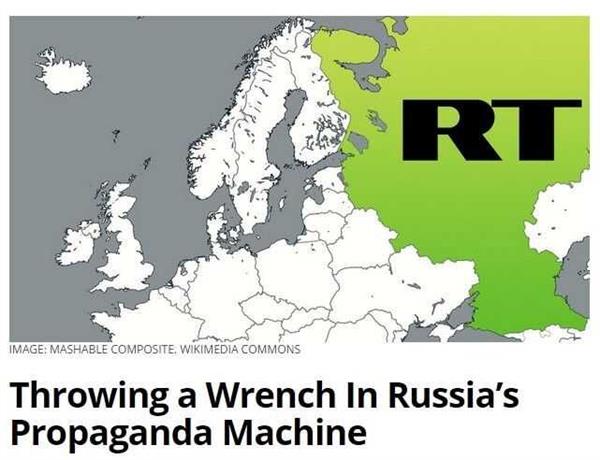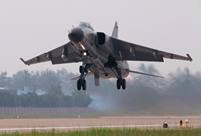

 |
| (File photo) |
BEIJING, July 17-- Barclays' freeze of the account of Russia's Rossiya Segodnya, commonly known as Russia Today (RT), once again shows the West's double standards over free press.
The British bank on Monday announced the freeze of the account of RT's representative office in London with neither details nor explanation, according to Sputnik, the news agency's English-language service.
In a letter sent to RT late Tuesday, the British bank said the account freeze was because Dmitry Kiselyov, one of the people subjected to financial and travel sanctions in the European Union (EU), "has control of the entity in his capacity as director general."
"We therefore have no alternative but to apply restrictive measures in accordance with the UK regulations," pursuant to the EU financial sanctions, Barclays said.
In March 2014, the EU characterized Kiselyov in a sanctions list as a "central figure of the government propaganda supporting the deployment of Russian forces in Ukraine."
Before the British bank's move, Poland, Germany and some other European countries have already taken similar actions toward the Russian news agency.
RT, founded in 2005, has come to the forefront in international news reporting in recent years, with a "Russian perspective" on global events deemed by the West as a challenge.
In fact, the news agency was chosen as a target for sanctions as it provided reports on the Ukraine crisis and other international events with a voice that irritated Western countries.
Russian media expressed strong indignation at the account freeze, saying the move aims to "restrict freedom of speech."
Alexander Yakovenko, Russia's ambassador to Britain, tweeted that the move is an example of using censorship against media that provide an alternative point of view.
"What happened can only be regarded as an attempt at censorship, the desire to block the work of the media which is giving a platform to alternative points of view to the local official line," said the ambassador.
It is well known that Western countries have been flaunting freedom of press and freedom of speech and regarded them as a symbol of democracy. But the bank account freeze just exposes their double standards.
As a matter of fact, if journalists in Western media hold views different from "mainstream voices," their reports will also be banned by governments.
In 2003, Peter Arnett, a famed journalist in the United States, was fired by NBC due to his "improper remarks" toward the U.S. government when covering the Iraq War.
Meanwhile, Western media, under the guise of freedom of press, are biased against developing countries.
Therefore, the freedom of press boasted by the West is nothing but a pseudo-proposition, aimed at firmly controlling public opinion.
The freeze of RT's bank account let people once again see the true features of the so-called freedom of press flaunted by Western countries.
 Yunnan-Myanmar Road: The past and present
Yunnan-Myanmar Road: The past and present Campus belle of Xiamen University gets popular online
Campus belle of Xiamen University gets popular online Who says moms cannot be trendy and hot?
Who says moms cannot be trendy and hot? 10 Chinese female stars with most beautiful faces
10 Chinese female stars with most beautiful faces Stunning photos of China's fighter planes
Stunning photos of China's fighter planes Enteromorpha hits Qingdao coast
Enteromorpha hits Qingdao coast Eight fruits that defend men's health
Eight fruits that defend men's health  First batch of female combat pilots with duel degrees fly Flying Leopard
First batch of female combat pilots with duel degrees fly Flying Leopard Top 10 secrets of longevity
Top 10 secrets of longevity Distant district set to shine
Distant district set to shine The break fast club: Observing Ramadan in Xinjiang
The break fast club: Observing Ramadan in Xinjiang GDP figures offer credible economic reassurance
GDP figures offer credible economic reassurance Student LGBT groups struggle for approval from China’s university authorities
Student LGBT groups struggle for approval from China’s university authoritiesDay|Week